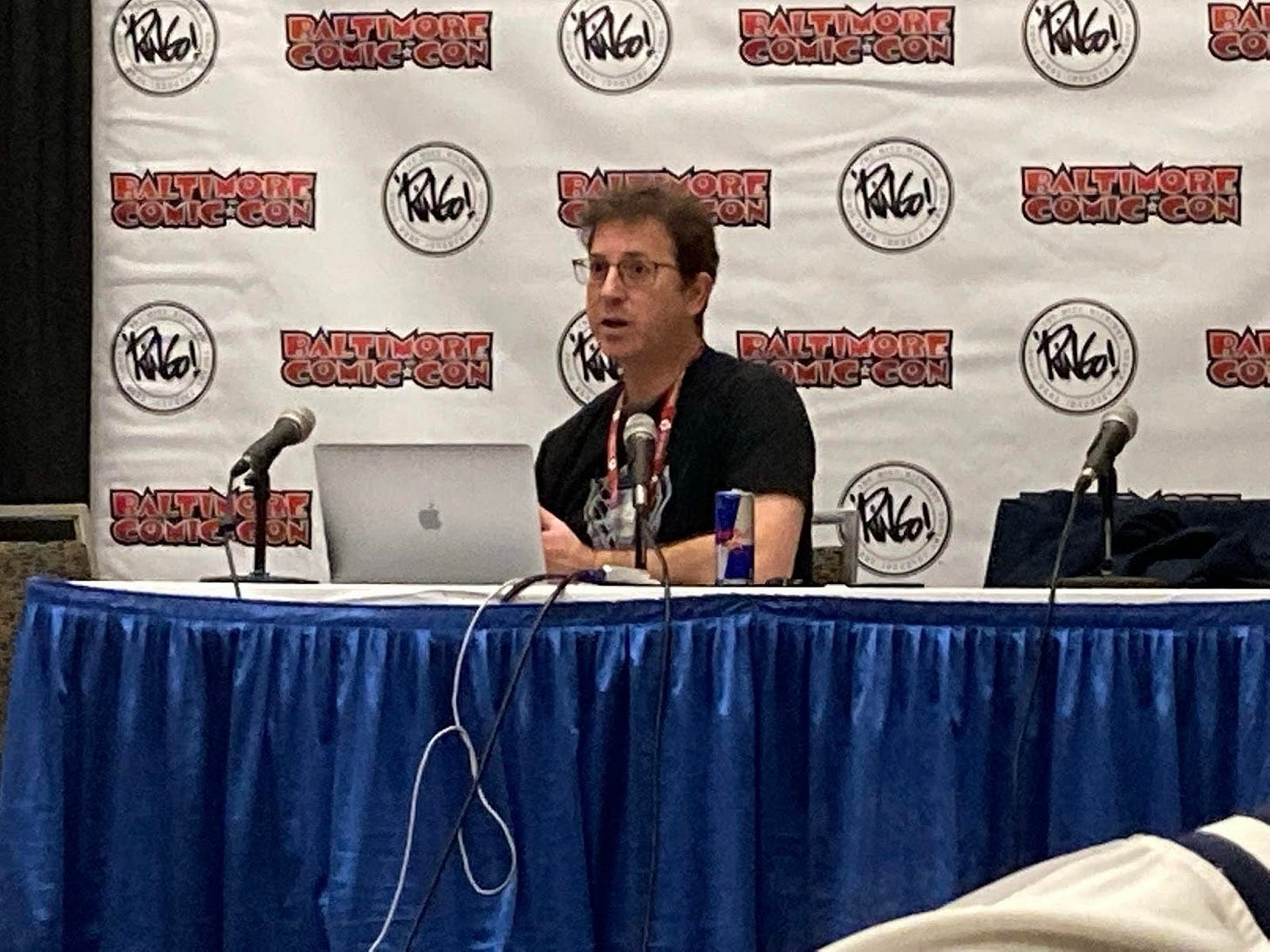A rift in the intelligence community, as officers reporting ‘Havana Syndrome’ see little compensation
Before a rare House hearing today that is ominously titled “Silent Weapons” — about the troubling health incidents widely known as “Havana Syndrome” — I spoke with two key witnesses.
One was retired Army Lt. Col. Greg Edgreen, who led the Defense Intelligence Agency’s investigation into the issue. He tells me that across all agencies, only about 5 percent of the spies, diplomats, and military personnel reporting health problems have received government compensation — despite the implementation of the HAVANA Act.
“It’s piecemeal,” he says. The CIA and State Department are compensating some employees and denying others. The FBI just proposed their regulations about two weeks ago. And the Defense Department… hasn’t even gotten that far. And Greg says the clock is ticking for the Defense Health Agency to use funds designated to help DOD victims. “With the late passage of the National Defense Authorization Act, we only have five months to fully execute this money, or it goes away,” he says. “This is the same department that planned and executed the Normandy invasion in less than six months.”
We talked as a rift in the intelligence community quietly deepens. There is a largely faceless, nameless body of people, brought together by claims of invisible injuries, now feeling disillusioned or gaslit. There are skeptics who question that suffering and/or its origins, long thought by believers to be pulsed energy attacks from Russia with love.
A recent 60 Minutes/Der Spiegel/Insider Report claimed a Russian military intelligence unit was behind the incidents, but the Office of the Director of National Intelligence continues to say they have exhaustively investigated and as stated in a 2023 assessment, “Most [intelligence community] agencies judge it is very unlikely a foreign adversary played a role” with varying degrees of confidence.
National security attorney Mark Zaid, another witness at the hearing, tells me that he plans to outline his suspicions as to why the U.S. government won’t attribute incidents to Russia. First, it is an act of war on U.S. soil, which would require a costly response. Second, the intel community does not want it known that they can’t protect their people (and doesn’t want officers fearful of overseas assignments). Third, the U.S. potentially uses similar technology albeit likely for different reasons — surveillance or incapacitation — or potentially “caused self-inflicted wounds on our own personnel.” And fourth, the medical costs could be astronomical.
I asked ODNI to comment on Mark’s four suspicions. A spokesperson told me, “We carefully reviewed the details presented in recent press reports” alongside the 2023 assessment. “While this additional review, which is now complete, did not cause IC elements to alter their analytic judgments – we continue to remain focused on identifying new information to help improve our understanding, particularly in areas we have identified as requiring additional research and analysis.”
The value of lunches
I asked Greg what it was like to investigate what the government calls “Anomalous Health Incidents” (AHI) inside the Defense Intelligence Agency. He talked about how he used to have lunch at least once a week with survivors and their families. Spouses were often the first to notice something was off — speech patterns, brain fog, sensitivity to light. “The changes and the devastation that these weapons bear, they're married to a new person. This is the new reality.”
Despite support from Defense Department leadership, he says, “I saw the direction that the IC was going in with their faulty assessment.” He also says he ran into logistical challenges executing government funds to compensate people. One day, a team member suggested he start his own company. “I said, ‘You know what? Let me think about that.’ And I did it.” Greg retired and started Advanced Echelon.
“We haven't made any money,” he says. “We have a large pro bono survivor advocacy wing of our business. We hope to start generating profit, which we invest into better care mechanisms by competing for government contracts that involve caring for people.”
Opening up Pandora’s box
Mark is a national security attorney who I have interviewed many times. His home is filled with first edition books, vintage comics, and figurines. Standing inside, you would never know he represents a number of CIA, NSA, FBI, and State Department personnel who claim their lives have been forever changed by AHI.
And he describes this work as never-ending. “I mean, it's heart wrenching,” Mark tells me. “I mean, I spend literally probably every day working on these cases… new victims, sometimes new information, new locations.”
His first client, Mike Beck of the NSA, came forward around 2012 — years before a path for compensation existed, years before incidents were reported in Havana leading to the “Havana Syndrome” moniker. Mark says that at the time, “I didn't really think it was much of anything. To me, it was just a spy versus spy tactic. And I remember telling NSA, I'm like, ‘What's the big deal? Why can't you just help us out? It's not like you're going to open Pandora's box.’”
Today, Mark believes the only reason intelligence officers came out of the shadows they thrived in was because of how poorly their agencies treated them. “Had the agencies, the multiple agencies, dealt with this issue better internally, secretly, quietly, it wouldn't have been the issue that it is now,” he says. “It's only in response to the distortion, the fraudulent comments, the lies.”
He says some of his clients tell him they wish they had been shot. “So I can just pull my shirt up and show you the bullet hole so you could go, ‘Oh my God, that must really hurt.’”
Mark says some officers are furious the government is continuing to downplay AHI, and some have even quit their jobs rather than take assignments in Russia’s sphere of influence, where they fear a directed energy attack could harm them or their families. I have personally known one officer who feared an assignment to such a place.
Russia’s hand v. America’s hand
After 60 Minutes, Der Spiegel, and The Insider linked incidents of brain injury to Unit 29155 of Russia’s military intelligence service, the Office of the Director of National Intelligence told me it had looked at that evidence and ruled it out.
Meanwhile Greg gives me open source examples that he says show Russia’s hand:
There are “Putin's comments about directed energy weapons, which they call weapons based on new physical properties,” he says. According to Russian state media, Putin last year said, "If one looks into the security sphere, new physical principles weapons will ensure the security of any country in the near historic perspective." The article also listed “radio-frequency arms” as an example.
Nikolai Patrushev, the Secretary of Russia's Security Council, wrote in a monthly intelligence magazine, "In recent years, hundreds of employees of foreign intelligence services, as well as other persons involved in organising intelligence and subversive activities against our country and our strategic partners, have been identified and neutralised." Greg says that if Patrushev did not mean not directed energy attacks, “then the question is, well, where else are we losing hundreds of intelligence officers, guys?”
The bottom line, he tells me, “I think we're beyond the attribution phase. I think it's time to fight back in the shadows.”
What did he mean? “There are a number of tools that the U.S. government has where we can hide the hand of our actions. And if we're being hit in the shadows and don't fight back, then we're only going to embolden our other strategic competitors like China, Iran and North Korea. What it means is, if we get hit in the face, we need to hit back in the face twice as hard.”
I asked him if he could be more concrete. “No, I can’t,” he said.
What happens now: a focus on care
Greg says AHI is like Agent Orange, Gulf War syndrome, and burn pits used at military bases in Iraq and Afghanistan until the mid 2010s. “We have a history of forgetting those that fought and were wounded in the line of duty for America, and gaslighting them at the beginning. But [in] time, everything is going to come to light.”
Both Mark and Greg say active duty service members must be included in HAVANA Act compensation. Greg says a diagnostic code must be created for the Department of Veterans Affairs. “When you go to the VA and ask for long-term benefits, they tell you, ‘Wait, you're a… you have what?’”
He says there also should be a long-term funding mechanism for people and their families who are suffering. “We've just scratched the surface of symptomatology. In the long term, we can expect things like rare cancers, heart diseases, tumors.”
With no consensus on a cause, and scant compensation to date, this rift continues… and it looks like Russia inevitably becomes the beneficiary.





